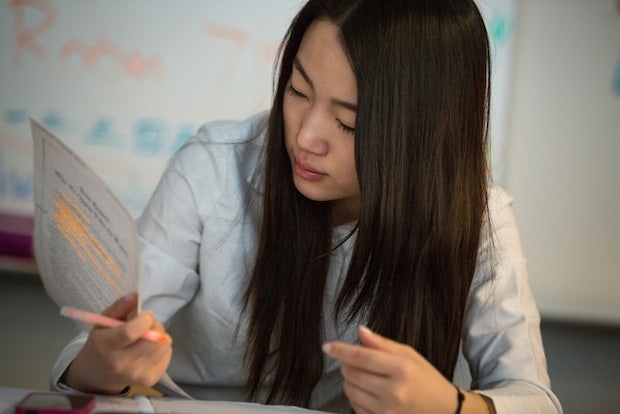Elite Private Schools Pay To Ensure Chinese Students' Credentials#

The application process for Chinese students applying to U.S. private schools is becoming more rigorous in its verification practices. (New York Times)
In response to a recent article in The New York Times on the growing trend of Chinese applicants to private U.S. high schools that more than hints at students buying their way in and contributes to the existing perception of high rates of application fraud, Jing Daily interviewed Chris Boehner, an insider in the Chinese outbound education industry with a unique perspective. Boehner is executive director and co-founder of Vericant, established in 2010 and offering one main service: locally conducted video interviews of Chinese applicants that help verify the authenticity of their application. Vericant’s clients are U.S. schools confronted with a growing number of Chinese applicants but unequipped with the local knowledge and resources to take the interview process a step further with a face-to-face meeting. Vericant was the first company of its kind when it was founded and now conducts thousands of video interviews a year, for $380 each, with a client roster dominated by boarding schools.
How did you come up with the idea of starting Vericant?#
Several years ago I tried to be an education consultant helping students apply to schools in the U.S. However, the expectations of families did not align with my values. They expected falsified transcripts, teacher recommendations, and personal statements. At the time, I didn't understand how they could ask for such a thing, now I do. The problem is many of these materials do not exist in China, which is why so many families expect education consultants to create them.
I met with a number of boarding schools to learn more about the problem and after hearing their thoughts, I put together a very talented founding team in Beijing. We originally wanted to verify transcripts and teacher recs hence our name Vericant, a combination of Verify and Applicant, but since they were mostly falsified, we didn't think that would add any real value to the admissions process. Our breakthrough moment was, "let's add verified data, rather than verify data." We tested a slew of ideas, gathered feedback from a few schools in the U.S. and finally determined video interviews and proctored writing samples would be most helpful to admission officers.
There seems to be an entire industry that revolves around outbound education in China, including scores of "consultancies" that guarantee clients admission to a high school or college abroad. Who are the other players involved?#
The main players are agencies and consultancies. Consultancies charge only the family while an agency charges both the school and family. China has predominately agencies.
Have you witnessed an increasing number of Chinese applicants to high school as opposed to waiting until college, as described in the New York Times article?#
Sure, the trend has moved from PhDs to Graduate School to Undergrad and now K-12.
We work primarily with boarding schools because they have hit their saturation point with Chinese students on campus, but the applications continue to increase. We don't only provide verification, but our online platform helps small admission offices manage a large number of Chinese applicants.
The article seems to imply that many of the Chinese students bought their way in. Do you feel this is an accurate reflection of the current state of things? What is your reaction to the article as someone who has firsthand experience interviewing applicants to U.S. private schools?#
I wouldn't say they bought their way in. They could afford the tuition and met the school's admission requirements. The type of student admitted at any school in the U.S. depends on the institution and their mission. If the applicant is mission-appropriate, they will be admitted.
What's next? Can we expect more international high school students from China, more private schools catering to them, and perhaps better business for companies like Vericant?#
Based on the data I've seen, the trend will continue for the foreseeable future. Private schools will cater to those looking for a quality education, just as they always have. The rise of China comes at a perfect time for many schools (higher education included). As the last of the Millennials, the children of baby boomers, age pass school, there will be a significant drop in American school-aged children.
As schools hit their saturation point and see increasing applications, Vericant makes a lot of sense. It's saving their staff the drudgery of early morning and late night Skype calls and they can be more confident about accepting the best applicants from their applicant pool.
As the article points out, many Chinese students gain admission despite seemingly insufficient English language skills. Do you foresee a backlash when the same students are applying to college?#
We're talking admissions here, not graduation. By graduation, the student should be granted a diploma only if they meet the requirements set by the school. There is no problem with schools accepting students with low levels of English provided the school has programming to support it and it doesn't distract others in the classroom.
There will be a backlash for schools if they don’t deliver on the education they promised to students and families.